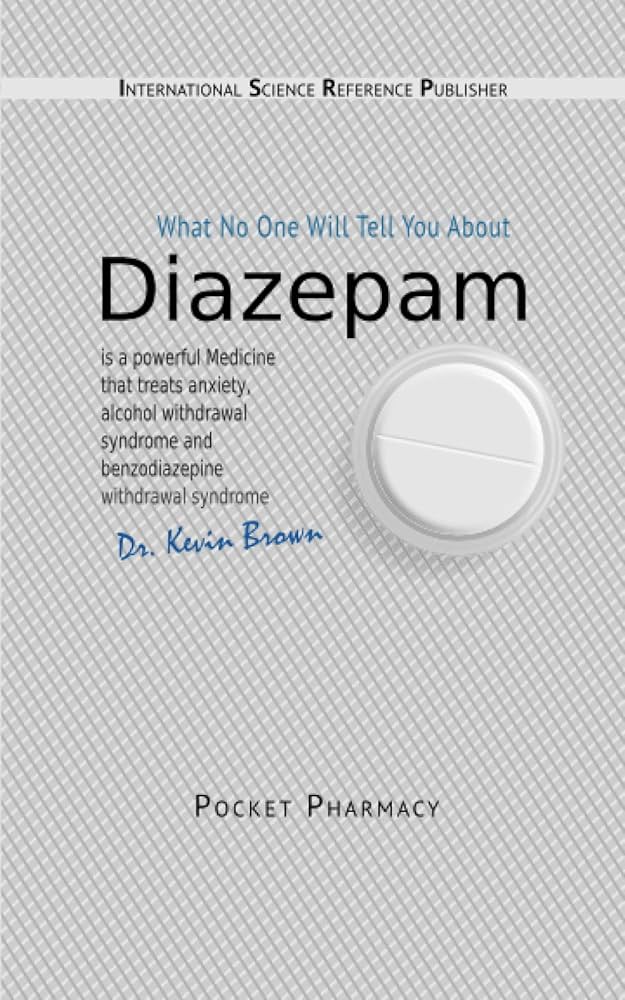The medical prescription of diazepam, a medication from the benzodiazepines class, is frequently associated with the treatment of anxiety, alcohol withdrawal, and seizures. Due to its anxiolytic effects, it is essential to pay attention to the potential side effects that may arise from improper or prolonged use. Proper use, guided by a healthcare professional, is crucial to ensure optimal effectiveness while minimizing risks.

The diazepam, a medication belonging to the benzodiazepines class, is commonly prescribed for its anxiolytic, sedative, and muscle-relaxant action. However, its use must be rigorously monitored by a healthcare professional, given its potential for undesirable effects and dependence.
Indications and prescription methods for diazepam
The diazepam is primarily prescribed to treat several conditions, including severe anxiety, sleep disorders, and seizures. In the context of alcohol withdrawal, it is used to alleviate manifestations of anxiety as well as detoxification symptoms.
For adults, the prescription of diazepam may extend to short-term symptomatic treatments for extreme or disabling anxiety episodes, with a duration generally limited to 2-4 weeks. For elderly individuals or those suffering from liver or kidney diseases, dosage adjustment is often required to avoid serious side effects that may arise from overdose.
As with any medication, it is imperative that diazepam is used only under medical prescription and according to the recommendations of a healthcare professional. Misuse, whether for oneself or for others, is strictly discouraged.
Potential side effects of diazepam
Diazepam can lead to various side effects. Among the most common are drowsiness, fatigue, and some degree of mental confusion. In some cases, memory disturbances may occur, especially if the treatment is prolonged or if the dosage is high.
Allergic reactions, though rare, can be severe. Signs such as hives, difficulty breathing, or swelling of the face, lips, tongue, or throat require immediate medical assistance.
Moreover, inappropriate use of diazepam can lead to physical and psychological dependence. Abrupt discontinuation of treatment can also trigger withdrawal syndromes, which may manifest as symptoms such as anxiety or tremors.
It is crucial to discuss any questions regarding the use of diazepam with a doctor. They will be able to assess the risks and benefits related to the prescription and adapt the treatment according to the specific needs of the patient.
Precautions to take when using diazepam
Before starting treatment with diazepam, it is essential to inform the doctor of any medical history and specific health conditions. Some patients may be more susceptible to experiencing undesirable effects, particularly those with a history of dependence, depressive disorders, or neurological conditions.
Furthermore, it is imperative not to mix diazepam with other psychoactive substances, such as alcohol or other sedative medications, in order to avoid dangerous interactions that could amplify sedative effects and increase the risk of side effects.
Pregnant or breastfeeding women should also undergo a thorough evaluation before receiving a prescription for diazepam, taking into account the potential risks to the fetus or infant.
For more information on diazepam, including its indications, dosage, and side effects, you can consult reliable sources such as Femme Actuelle or Charles & Co..

FAQ on medical prescription and side effects of diazepam
Q: What is diazepam?
A: Diazepam is a medication from the benzodiazepines class, often prescribed for its anxiolytic, anticonvulsant, and muscle-relaxant effects.
Q: For what indications is diazepam prescribed?
A: This medication is prescribed to treat severe anxiety, alcohol withdrawal, as well as certain seizures.
Q: What is the recommended dosage for diazepam?
A: Dosage must be carefully determined by a doctor, but it is generally prescribed for short-term (2 to 4 weeks) to avoid dependencies.
Q: What are the side effects of diazepam?
A: Common side effects may include memory disturbances, drowsiness, or allergic manifestations such as hives and difficulty breathing.
Q: Is it safe to use diazepam without a medical prescription?
A: No, it is imperative to never use diazepam without medical advice, as it can cause serious side effects and dependence.
Q: Are there precautions to take when using diazepam?
A: Yes, for elderly individuals or those suffering from liver or renal insufficiency, dosage adjustment is often necessary.
Q: What should be done in case of an allergic reaction to diazepam?
A: In the event of an allergic reaction, such as difficulties breathing or facial swelling, it is crucial to seek emergency medical help immediately.












